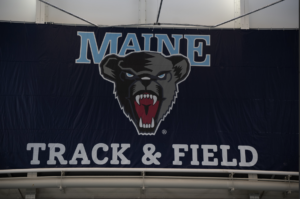On April 18, 1995, legendary San Francisco 49ers and Kansas City Chiefs quarterback Joe “Joe Cool” Montana retired from the sport of football. Montana walked away from the sport as a four-time Super Bowl champion, three-time Super Bowl MVP, two-time NFL MVP, eight-time pro bowler, five-time all-pro and is widely considered one of the greatest quarterbacks of all time.
Montana was born on June 11, 1956, in New Eagle, Pennsylvania, a region also known as “The Cradle of Quarterbacks” with other prominent players coming from the region including Dan Marino, Johnny Unitas and Joe Namath. After a storied high school career and a strong start as the country’s top recruit, he took his talents to the University of Notre Dame.
He did not see the field as a freshman due to a team rule but played in several relief appearances where he led his team to two fourth-quarter come-from-behind wins against the University of North Carolina and the United States Air Force Academy. Montana separated his shoulder during the next season, so he was given a medical redshirt. In his third season, he started as the team’s third-stringer. He was quickly thrown into action in the third game and after he led them to another comeback win he never gave the job back.
The team won its next nine games, including the 1978 Cotton Bowl against the University of Texas, and won the national title. Their next season was not as strong, but they again made it to the Cotton Bowl, where Montana put up a game of legendary proportions. During the game, he developed hypothermia and was given hot blankets and chicken soup as he stayed in the locker room to start the second half. With his team down three scores, Montana led them to victory. Aptly, this performance is remembered as “The Chicken Soup Game.”
His collegiate career was enough to get him drafted in the third round in the 1979 draft by the San Francisco 49ers. Montana was the backup behind Steve DeBerg before taking over the starting job halfway through his second season. In that season’s finale, he had the first of his 31 career fourth-quarter comebacks.
The next year, Montana led the 49ers to the best season in the team’s history. By the end of the season, Montana was named to his first all-pro and pro-bowl teams. In the NFC championship game, Montana made NFL history when he threw a game-winning touchdown to Dwight Clark, throwing off of his back leg while being surrounded by three Cowboys defenders. The play was later named “The Catch.” The next week, the 49ers won their first Super Bowl, beating the Cincinnati Bengals. Montana was subsequently named the game’s MVP.
Three seasons later he won another Super Bowl and the game’s MVP against the Miami Dolphins and Dan Marino. Two seasons later Montana had a serious back injury and missed the rest of the season and the team traded for Steve Young. This resulted in a quarterback controversy that later developed into hatred. Montana ended up keeping the job when returning from injury, leading the team to back-to-back Super Bowl wins. In ‘88, they beat the Bengals again with yet another Montana comeback with a 92-yard game-winning drive. The next season they beat the Denver Broncos and John Elway 55-10, the biggest blowout in Super Bowl history.
The next season, the 49ers sought a three-peat, but Montana took a hard hit in the NFC Championship game against the Giants and was injured. This injury lasted a while, seeing Montana carry the injury into the next season. That’s when Young took over the starting job, and after the ‘92 season, Montana was traded to the Kansas City Chiefs. The following season, he led the Chiefs to their best season and their first AFC championship game appearance in over 20 years before losing to the Buffalo Bills. He played one more season before retiring 27 years ago. Montana was elected to the Pro Football Hall of Fame in 2000.




